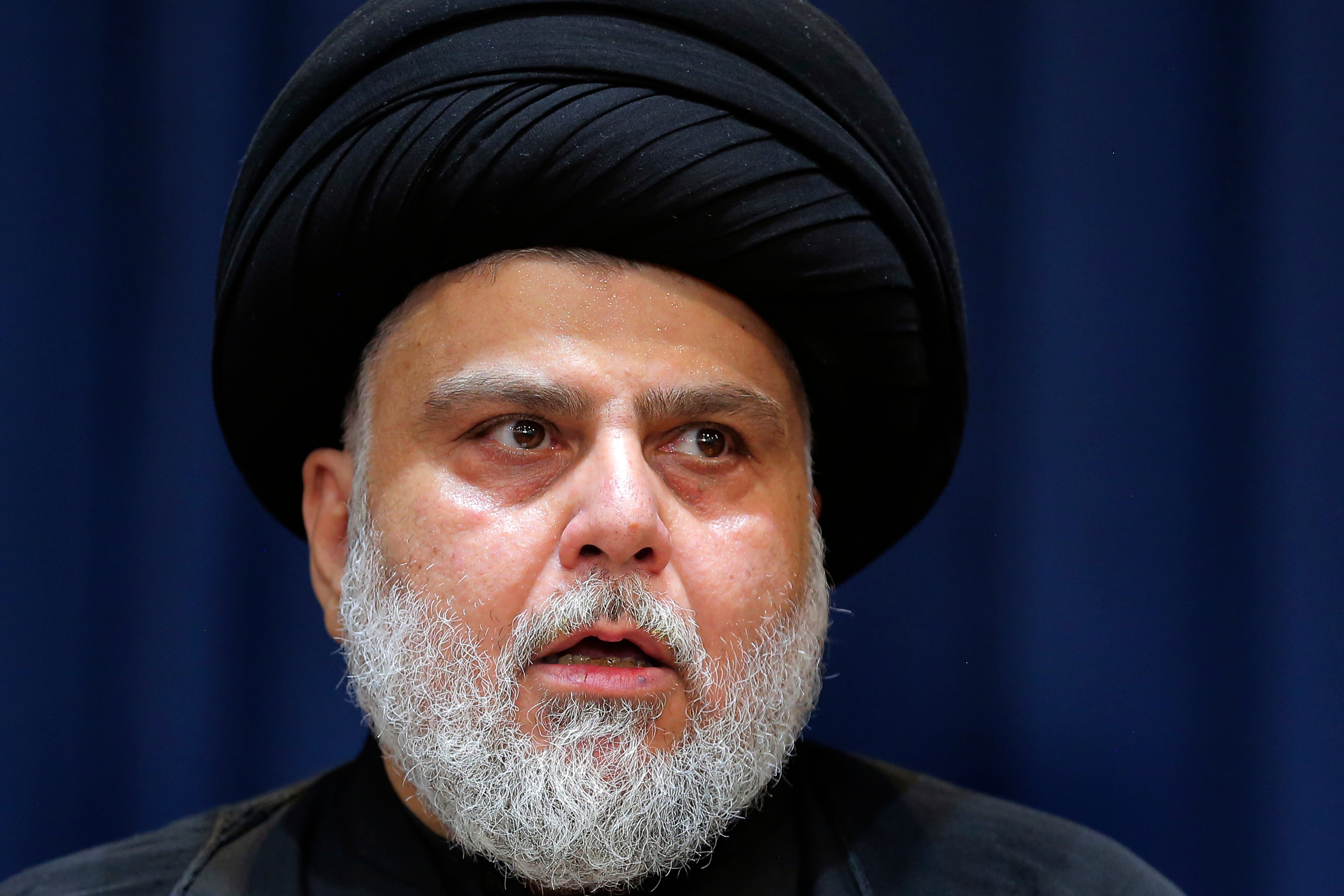Populist Iraqi cleric announces suspension of his movement
Influential Iraqi Shiite cleric and political leader Muqtada al-Sadr says he will suspend the movement he leads for one year, citing “corruption” among some of his followers

Your support helps us to tell the story
From reproductive rights to climate change to Big Tech, The Independent is on the ground when the story is developing. Whether it's investigating the financials of Elon Musk's pro-Trump PAC or producing our latest documentary, 'The A Word', which shines a light on the American women fighting for reproductive rights, we know how important it is to parse out the facts from the messaging.
At such a critical moment in US history, we need reporters on the ground. Your donation allows us to keep sending journalists to speak to both sides of the story.
The Independent is trusted by Americans across the entire political spectrum. And unlike many other quality news outlets, we choose not to lock Americans out of our reporting and analysis with paywalls. We believe quality journalism should be available to everyone, paid for by those who can afford it.
Your support makes all the difference.Influential Iraqi Shiite cleric and political leader Muqtada al-Sadr announced on Friday that he would suspend the movement he leads for one year, citing “corruption” among some of his followers.
A group within his Sadrist movement, which has dubbed itself the “Owners of the Cause,” believes that al-Sadr is Imam Mahdi, a Shiite religious leader said to have vanished more than 1,000 years ago and who is expected to return leading an army of the faithful to defeat evil in the world.
On Friday, Iraq’s Supreme Judicial Council announced that an investigative court had ordered the arrest of 65 alleged members of the “Owners of the Cause,” which it described as a disruptive “gang."
In a statement posted on his Twitter account, al-Sadr said, “I want to be a reformer for Iraq, and I cannot reform the Sadrist movement.” He added that he will freeze all activities of the movement — except for religious activities such as Friday prayers.
Al-Sadr resigned from politics last August, following a nearly yearlong deadlock in the formation of a new Cabinet. His party won the largest share of seats in the October 2021 parliamentary elections, but not enough to secure a majority government.
Al-Sadr's refusal to negotiate with his Iran-backed Shiite rivals and his subsequent exit from the talks catapulted the country into political uncertainty and volatility amid intensifying intra-Shiite wrangling.
After al-Sadr announced his resignation from politics, hundreds of his angry followers stormed the government palace and clashed with security forces. At least 15 protesters were killed.
Al-Sadr had won a mass base of followers, many of whom hail from Iraq’s poorest sectors of society, with nationalist rhetoric and promises of reform.
Many of his supporters were first followers of his father, a revered figure in Shiite Islam.